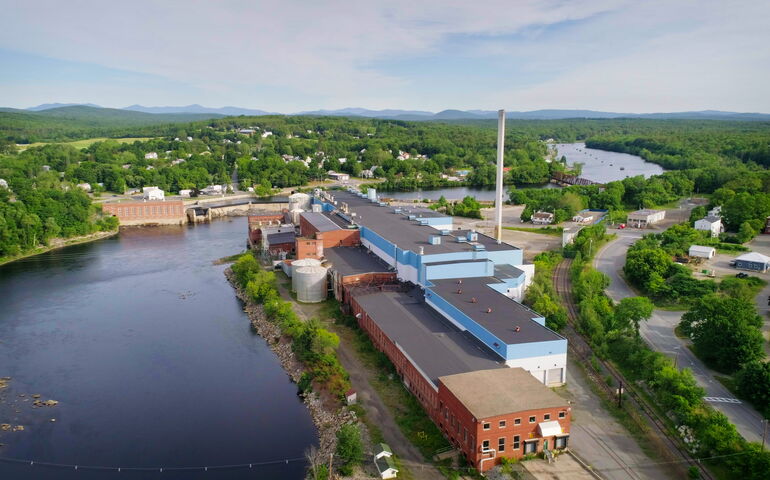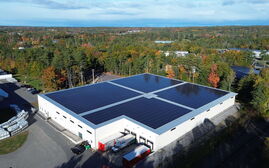TimberHP to develop environmental disclosures for its wood-fiber insulation
 Photo / Courtesy, TimberHP
TimberHP produces wood-fiber insulation in Madison.
Photo / Courtesy, TimberHP
TimberHP produces wood-fiber insulation in Madison.
GO Lab Inc., doing business as TimberHP, was awarded a $418,420 grant to install equipment and software that will capture energy and raw material usage data on its board, batt and loose-fill insulation made from wood fiber.
The data will be used to develop standardized labeling that would make it easier for buyers to ensure the construction projects they fund use more climate-friendly products and materials.
The Madison startup was one of four recipients of U.S. Environmental Protection Agency grants to support efforts in reporting and reducing climate pollution from the manufacturing of construction materials.
The data will be used to develop and publish environmental declarations for each of the company’s three product lines over its first five years of production.
Environmental product declarations are a way for manufacturers to boil down third-party life cycle assessments into standardized declaration labels for their products, according to the U.S. General Services Administration.
A life cycle assessment is a complex cradle-to-grave analysis of the environmental impacts of a product’s life cycle, from gathering raw materials to creating the product to returning materials to the earth.
TimberHP is the first company in North America to produce insulation from wood fiber. The material is considered cost-competitive, renewable, recyclable, nontoxic and carbon sequestering.
“The innovative work being done by GO Lab in Maine means that families can insulate their homes with sustainable, non-toxic materials that also help fight climate change,” said David Cash, EPA’s regional administrator.
Madison production
Insulating wood fiber composites have been manufactured at scale in Europe for over two decades but were not widely available in the U.S. until TimberHP’s facility in Madison began production in 2023.
The carbon footprint of insulation products is second only to concrete due to the materials used in its manufacture and the energy required for its production.
EPA estimated that the construction materials used in buildings and other built infrastructure account for more than 15% of annual global greenhouse gas emissions.
The EPA grant program aims to help disclose the environmental impacts associated with manufacturing concrete, asphalt, glass, steel, wood and other materials.
The efforts are expected to help standardize and expand the market for construction products with lower greenhouse gas emissions; and to make it easier for federal, state and local governments and other institutional buyers to ensure the construction projects they fund use more climate-friendly products and materials.
TimberHP was founded by chemist Joshua Henry and architect Matthew O’Malia, who were among the 2024 Mainebiz Business Leaders of the Year.













0 Comments